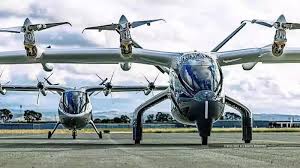EdTech Startups Reshape Student Learning in 2025
In 2025, education in India and around the world is witnessing a profound metamorphosis largely powered by the explosive growth of EdTech startups. No longer confined to digital classrooms born of necessity during the pandemic, these technology driven companies are now proactively reshaping the way students learn, interact, and build knowledge. From AI based tutoring and personalized learning dashboards to immersive gamification and virtual labs, the EdTech ecosystem is offering powerful alternatives to traditional classroom models. These startups are not just supplementing education they’re revolutionizing it.
At the heart of this transformation is personalized learning, which has now become a standard offering across most leading EdTech platforms. Startups like Byju’s, Vedantu, Toppr, and newer entrants like Infinity Learn and Classplus have developed systems that use machine learning to tailor content delivery based on each student’s strengths, weaknesses, and learning speed. No two learners experience the same path. For instance, a student struggling in algebra may receive more visual content and guided problem sets, while an advanced learner may be encouraged to explore higher order thinking through simulations or puzzles. This ability to customize the learning journey is one of the biggest achievements of EdTech in 2025, and it is helping students feel more engaged, confident, and in control.
Another standout feature of EdTech’s rise is the democratization of quality education. In previous decades, access to top tier coaching or resources was limited to urban, affluent circles. In 2025, however, students from rural and semi urban backgrounds are increasingly able to access high quality education through mobile phones and affordable internet. Companies are investing in multilingual content, offline capabilities, and low data learning environments to serve students in diverse settings. Startups like Doubtnut and Khan Academy India are producing content in regional languages, ensuring that geography is no longer a barrier to academic excellence. This digital inclusion is a major milestone in bridging India’s education divide.
EdTech has also revolutionized assessment and feedback systems. Traditional tests that rely on long form writing and delayed grading have been replaced by smart quizzes, real time analytics, and adaptive testing. Platforms like Testbook and Embibe use AI to deliver real time performance reports, heat maps of concept mastery, and targeted recommendations. Teachers and parents can track progress with precision, and students receive instant feedback to correct errors and reinforce concepts. This rapid cycle of learning and correction is enabling deeper conceptual clarity and faster improvement something conventional schools have long struggled to provide at scale.
In 2025, interactive and immersive learning is a major theme. Startups are increasingly adopting augmented reality (AR), virtual reality (VR), and game based learning to make abstract topics tangible and fun. For instance, a biology student can now explore the human heart in 3D using a VR headset or an AR enabled phone app. Geography classes can simulate volcano eruptions or climate cycles, while history can be brought alive through interactive timelines and virtual museum tours. Gamification elements like badges, leaderboards, and in app rewards have also increased student motivation. These tools turn passive learning into an engaging experience that promotes curiosity and long term retention.
The transformation isn’t limited to students. Teachers are also benefiting immensely from the EdTech boom. Platforms now offer teacher training, digital classroom management tools, lesson planning assistance, and access to curated content libraries. Startups like Teachmint and Suraasa are helping educators upskill in digital pedagogy and hybrid teaching models. Many teachers now operate as “edupreneurs,” building their own online courses or tutoring businesses with the help of tools that automate scheduling, content delivery, and student performance tracking. This ecosystem empowers educators to be more flexible, creative, and data driven marking a shift from instructor to facilitator of learning.
Yet, the rise of EdTech in 2025 is not without challenges. Screen fatigue, data privacy concerns, and digital inequality continue to be pressing issues. While urban students benefit from high speed internet and the latest devices, many rural users still face signal drops and outdated hardware. Some students report a loss of peer to peer interaction and feel disconnected from real world social learning. Additionally, questions are being raised about the monetization models of some startups especially those that push aggressive subscription schemes. Regulators and policy makers are now more involved, with efforts to define ethical EdTech frameworks, ensure content accuracy, and promote child safety online.
In conclusion, EdTech startups in 2025 are no longer the future they are the present. Their ability to innovate rapidly, personalize education, and break geographical and socioeconomic barriers is fundamentally transforming how students learn in India and beyond. if it’s an 8 year old coding her first game from a village in Odisha, or a 12th grader in Delhi mastering calculus through AI guided modules, the impact is undeniable. As infrastructure improves and technology becomes even more integrated into everyday life, the synergy between traditional education and EdTech holds the promise of a smarter, more inclusive, and engaging future for learning. The education revolution is here and it's digital.
Education











